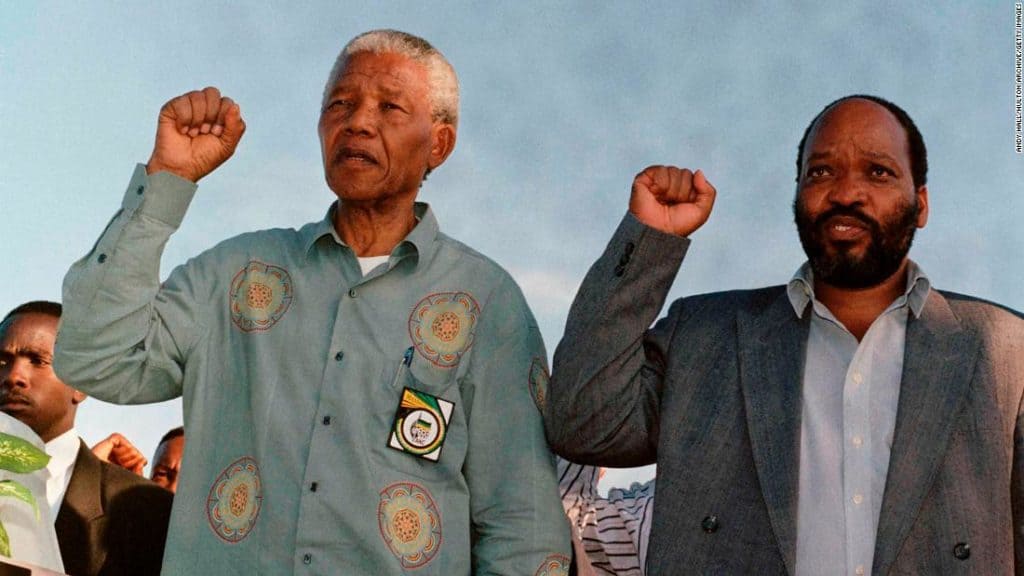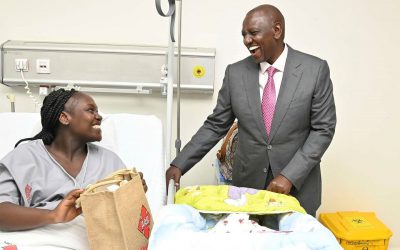By Faith Abiodun
In the end, he will not be remembered much for any of his policies or his Radical Economic Transformation agenda; it will be the scandals, as numerous as the alphabets in his middle name – Gedleyihlekisa – that will colour Jacob Zuma’s legacy. He was no Mandela, not even an Mbeki, but for nine years, he sat in the exact same seat as they did and presided over the beautiful nation of South Africa. In years to come, children will read about “Nkandla”, “The Guptas”, “Des van Rooyen”, “State Capture”, “Khwezi”, “Zuma must go” and many other infamous quips from the 2009 – 2018 era in South Africa, and those appellations will stand out because of the actions and inactions of the man whose suitability for the highest office was questioned by most citizens long before he was sworn in.
Jacob Zuma was a veteran of the struggle, having joined politics as a youngster and experienced the worst of apartheid. He joined the African National Congress (ANC) in 1959 and lived through persecution as a member of Umkhonto we Sizwe and the South African Communist Party, spending 10 years imprisoned next to Nelson Mandela on Robben Island. His stealth and activism were sharpened during those years spent evading arrest and hopping between Swaziland, Mozambique and Zambia from 1975-1990. In that time, his stock rose drastically as he served as Head of Intelligence for the ANC and helped to build much of its underground structures. When the ban on the ANC was lifted in 1990, he was one of the first to return to the country from exile to commence negotiations with the government. It was little surprise then that he was quickly nominated by the ANC to be Premier of his province, KwaZulu Natal in 1994 before eventually being appointed by Nelson Mandela as a Member of the Executive Council for Economic Affairs and Tourism.
In the shadow of Nelson Mandela and Thabo Mbeki, Zuma continued to rise through the political ranks, eventually becoming Deputy President of the ANC in 1997. In June 1999, he was appointed Deputy President of the country and he served in the role until 2005, but by then the allegations of corruption against him were already extensive. In the infamous South African Arms Deal involving $4.8billion worth of purchases of weaponry by the ANC, Zuma was accused of soliciting bribes through his advisor Schabir Shaik who was eventually sentenced to 15 years in prison. Under immense pressure, President Thabo Mbeki relieved Zuma of his duties as Vice President in June 2005, and he subsequently resigned as a member of parliament.
It is telling, both of his political prowess and the nature of politics in South Africa, that his popularity grew in sync with his recrimination – he drew crowds in the thousands to his trial cases in 2005, leading many to speculate that if the corruption charges against him were dropped, he would be unstoppable in the party’s 2009 elections. But then “Khwezi” happened. In December 2005, a 31-year old woman who became known in the media as “Khwezi” accused Zuma of raping her at his home. Being the daughter of one of his political comrades, it was said that she saw him as a father figure, and though he insisted that the sex was consensual, the media storm created was worsened when it was revealed that she was HIV-positive and he claimed to have not used a condom, but that he showered after the sex. As the then-head of the National AIDS Council, Zuma’s reasoning could not have been worse. He was eventually acquitted of rape by the court in 2006, but there was still the ongoing corruption trial and the upcoming ANC elections in November 2007. Somehow, the stars aligned for Zuma as he defeated Mbeki at the ANC elections on December 18, 2007, crowning him as the country’s de facto incoming president, but within ten days, the National Prosecuting Authority served him an indictment to stand trial in the High Court on various counts of “racketeering, money laundering, corruption and fraud”. In total, there were 783 counts of corruption levelled against Zuma.
Jacob Zuma’s propensity for outsmarting opposition seems to be his signature skill. Against all odds, and mostly defying common sense, Zuma was sworn in as South Africa’s fourth elected president on May 9, 2009. If anyone had hoped that it was possible for a leopard to change its skin, it was evident that they had not met Mr. Zuma. Of all the things that irked South Africans about Zuma, perhaps none was as troubling as his relationship with the infamous Gupta family. Books might be written and movies might be made in the future about the special relationship between Zuma and the Guptas, but one cannot dismiss the level of rot in the country that permitted the Guptas to offer former ANC MP Vytjie Mentor the position of Minister of Public Enterprises if she could arrange for South African Airways to drop its India route so that Jet Airways (linked to the Guptas) could take on the route. Neither can we justify the shady dismissal of Finance Minister Nhlanhla Nene in 2015 to pave way for inexperienced Gupta stooge Des van Rooyen to take over such a sensitive portfolio. Many more Gupta errors have troubled the country including landing a chartered plane on a military airstrip for a family wedding, collaborating with Zuma’s son, Duduzane, to influence the awarding of a R51billion contract for delivery of trains to South Africa, and buying up significant interest in the country’s mining, energy, transportation and media industries. And what is to be made of Zuma spending more than R246million of state funds to make upgrades to his private home in Nkandla, purportedly for security reasons?
Zuma could be forgiven by South Africans for having no formal education; he could be exonerated for fathering an estimated 21 children by 10 women; he could be pardoned for recklessly singing “shoot the boer” in 2012, and he could even be tolerated for claiming on February 14, 2018 that he had no idea why his party, the ANC, had decided that he had to leave office after extensive calls from opposition parties, friends in government, elder statesmen like Thabo Mbeki, respected organizations like the Ahmed Kathrada Foundation and Nelson Mandela Foundation, alongside exhausted citizens like the three grandmas who stood in the rain on Beyers Naude road in April 2017 to craft the “Zuma Must Go” dance. With time, South Africans could attempt to blot out the memories of the past nine years, but they will not raise a fist in the air, as they did for Mandela, whenever Zuma’s name comes up in the future; at best they might raise a finger in the air and take a slight bow as they recall those cute gogos singing “Zuma must go! Zuma must go! Zuma must goooooooo…….”
PS: Isn’t it curious that Zuma’s middle name, Gedleyihlekisa, means “one who smiles while causing you harm” in Zulu? Hmmm.
Faith Abiodun, a resident of Johannesburg, is Executive Director of Future Africa







